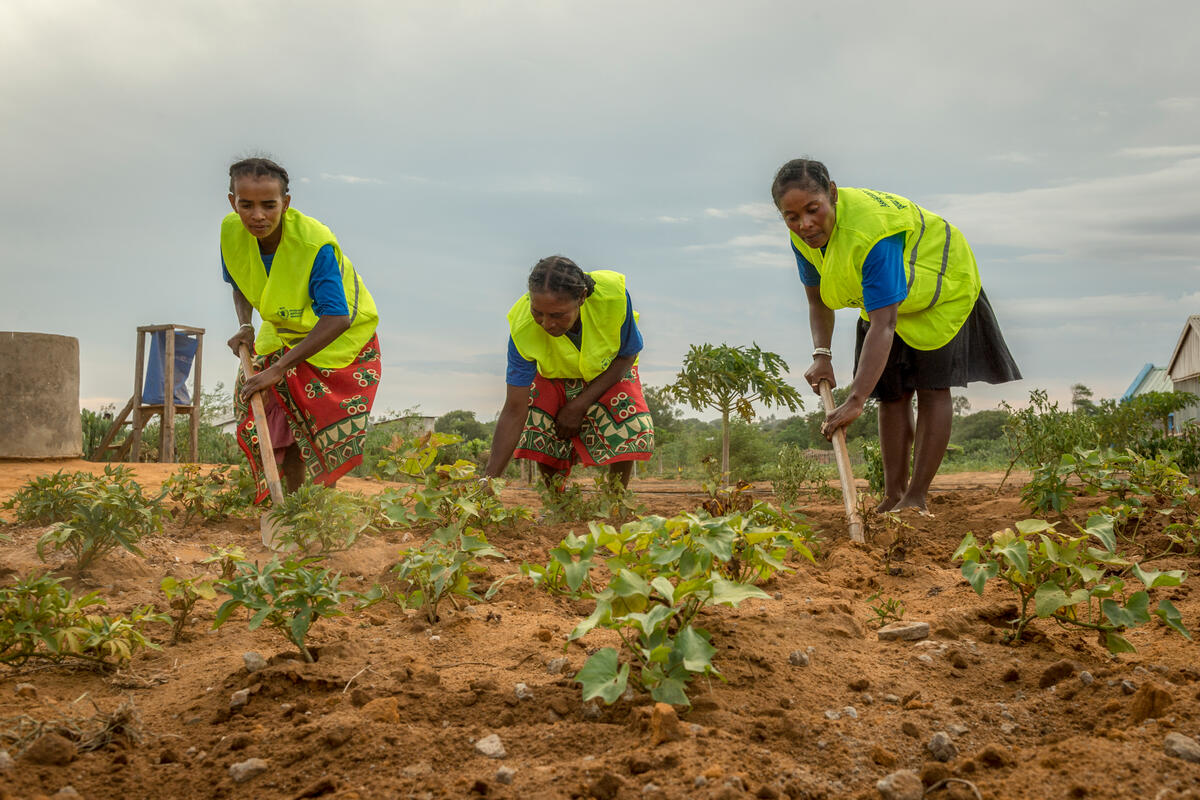
A team of experts from the WFP Centre of Excellence Against Hunger in Brazil participated, on Thursday, April 22nd, in a workshop on local purchases for school feeding programmes. At the event, the WFP offices in Brazil and Peru, as well as representatives of the Peruvian government, exchanged information on successful experiences in purchasing supplies for school feeding from local agriculture. Representatives from the Peruvian Ministries of Health, Agriculture, and Education, as well as FAO and IFAD, also participated.
Daniel Balaban, WFP Representative in Brazil and Director of the Centre of Excellence, took part in the technical discussions. “Linking school feeding to smallholder farming is one of the greatest challenges of these programmes around the world, but it is also one of the measures that can be most effective in creating an impact in many sectors,” Daniel Balaban said in his speech. Some of the advantages he cited for the inclusion of smallholder farming purchases were menu diversity with the inclusion of fresh produce, the guarantee of a market for farmers, and income improvement for farmer families.
The workshop is the first phase of a series of virtual exchanges within the “Promoting Participation of Small and Medium Farmers in Public Purchases to Improve the Nutrition of Schoolchildren in Peru” project, which began in April 2020. During the event, experts and government representatives discussed the results of two recent studies on linking Peruvian smallholder farmers to the public procurement market: an analysis of the main challenges and needs of smallholder farmers to connect with institutional markets in Peru; and on mapping successful experiences of the School Feeding Programme that promote acquisition of food from smallholder farmers.
The second stage of the virtual exchanges will consist in two additional workshops, in which the Brazilian and Peruvian governments will hold a series of presentations and conversations on smallholder farming purchases for school feeding and related topics, scheduled for May 11 and 13 this year.
School feeding in Peru
Peru recently approved the “Public Food Purchases from Smallholder Farming Law”. According to this law, at least 30% of foodstuffs purchased by the public administration’s sectoral programmes must come from smallholder farming. The Qali Warma National School Feeding Programme is the largest public procurement claimant in the Peruvian state. It was implemented in 2013 and benefits 3.8 million students in 63,000 schools.
The programme’s coverage reaches 98.6% of students in primary education and 99.2% in public schools. However, Qali Warma does not include perishable items in its menu. Therefore, the Peruvian government is interested in learning from the Brazilian experience about adjustments necessary to comply with the mandatory 30% of purchases from smallholder farming in the Qali Warma programme.




